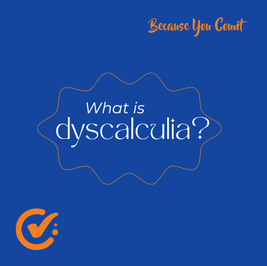Causes, Identification, what can help?
Collated by Jean McKenzie. This is information is based on information from Dr Anna Wilson of Learning Brainz, Judy Horningold, Education Consultant, Angelica Benson, Lindamood-Bell Learning Process. These 3 consultants are world renowned in NZ, USA and UK.
What is Dyscalculia?
A severe difficulty in mathematics, not explained by general cognitive difficulties or educational opportunities. Mathematical ability is substantially less than would be expected from the person’s age, intelligence and education. This impedes academic achievement or daily living.
How many have Dyscalculia? Around 6%, the same as Dyslexia!
Indicators/ Symptoms
· An inability to instantly tell you how much in a set
· Poor number sense
· Can’t say if reasonable answer
· Immature strategies eg counting all instead of counting on.
· Inability to notice patterns
· Inability to generalise eg 3 + 4 = 7, 3cm and 4cm = 7cm
· Slow processing speed
· Difficulty sequencing
· Poor memory for facts and procedures
· Difficulties in word problems and multi-step calculations
· Delay in counting on, counting all
· Delay in memorising of number facts
· Difficulty using finger counting
· Anxiety or negative attitude towards maths
Impact on maths learning
§ Number sense
§ Estimating
§ Assessing difference in numerical quantity
§ Understanding maths symbols
§ Place value
§ Placing numbers on a number line
Ways to help
o Activities that focus on the connections between numbers as quantities and symbols
o Practice rounding numbers – estimating
o Use base ten materials to support understanding of number eg Tens frames, 5 frames, Abacus
o Encourage verbalisation
o Explore how numbers relate to each other to develop number sense
o Link between number, symbol and quantity
o Visualisation eg Can you see 6 hiding in that ten? Can you imagine 24 dogs in the field, we need to separate them for 4 owners. Relevance – can you give me a reason to add 8 + 6.
o Spotting patterns in maths
Who can assess Dyscalculia?
· Assessment should be carried out by a qualified professional eg Registered educational psychologist, RTLB SPELD assessor, NZCER C-grade assessor, Learning Matters




